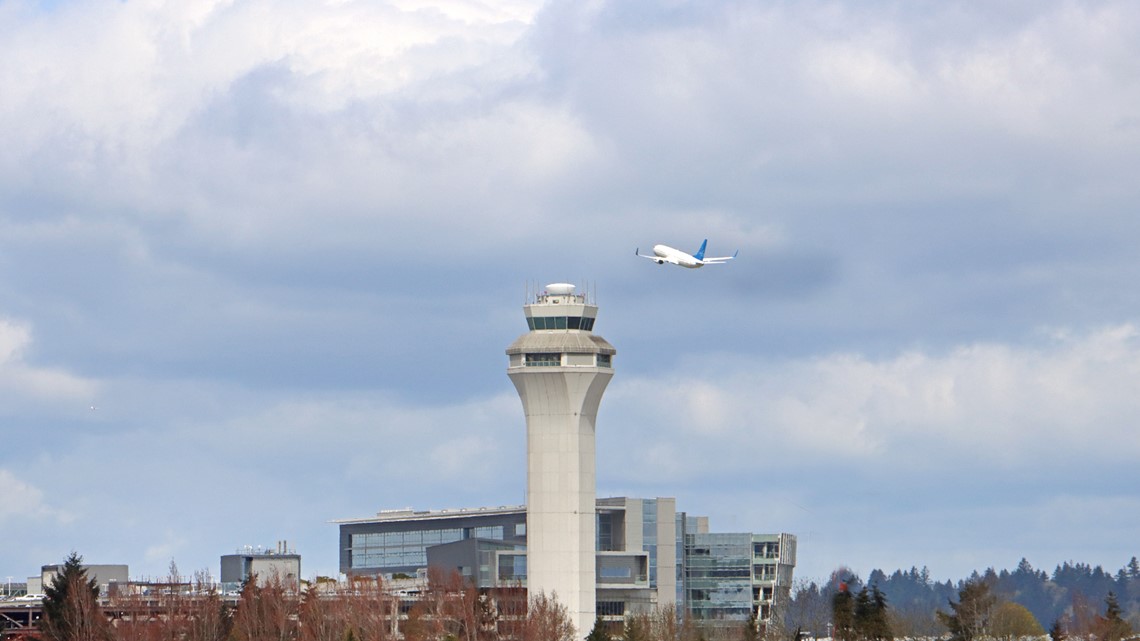
After the recent near-disaster involving an off-duty Alaska Airlines pilot, the FAA says it’s creating a group to make rule recommendations concerning mental health.
WASHINGTON — Following last month’s high-profile incident where an off-duty Alaska Airlines pilot allegedly tried to bring down a plane before it was diverted to the Portland International Airport, federal aviation authorities say they are taking steps to rethink how the industry handles mental health care.
Problems with the mental health care system for commercial aviators is an open secret in the industry. If seeing a therapist produces a mental health diagnosis, that diagnosis can result in a pilot being grounded — at least temporarily losing their livelihood. Industry insiders say that this has had a chilling effect, meaning aviators are less likely to seek help when they need it.
RELATED: Afraid of losing their wings, pilots may not seek mental health care
In a Thursday statement, the Federal Aviation Administration announced that it will establish a Pilot Mental Health Aviation Rulemaking Committee to provide recommendations on ways the agency can break down the barriers that might prevent pilots from reporting mental health issues.
“Mental health care has made great strides in recent years, and we want to make sure the FAA is considering those advances when we evaluate the health of pilots,” said FAA Administrator Mike Whitaker.
As it is, pilots are required to report certain mental health conditions to their aviation medical examiners, who in turn determine the pilot’s fitness to fly.
According to the FAA, the new committee will include both medical experts and aviation and labor representatives. A charter for the new rulemaking body will be finalized and its members appointed “in the coming weeks.”
The FAA said that it has made previous steps to increase mental health training for those aviation medical examiners, supported more research on pilot mental health in the industry, hired more internal mental health professionals, amended its policies to decrease the amount of cognitive testing for pilots using antidepressant medications, and increased outreach to pilot groups to make them aware of available resources.
“In addition, the FAA will work with the (committee) to address open recommendations from the July 2023 DOT Office of Inspector General report on Pilot Mental Health Challenges, which found that the agency has ‘comprehensive procedures to evaluate pilots’ psychological health,’” the agency said.
RELATED: Off-duty pilot who tried to cut plane’s engines said he’d taken magic mushrooms 48 hours earlier
In his first interview since the near-disaster in October, former Alaska Airlines pilot Joseph Emerson told The New York Times that ongoing mental health struggles and an ill-fated experiment with hallucinogens proceeded his alleged attempt to crash the plane — an experience that he didn’t think was real at the time, he said, like a dream he’d been trying to wake from.
The Times reported that Emerson had gone on a weekend getaway with friends two days earlier where they took psychedelic mushrooms. They’d gotten together to mark the death of Emerson’s best friend — a loss, the Times wrote, that had plunged him into a deep grief and prompted him to look for help for “what he realized were longstanding mental health issues.”
“A lot of us aren’t as forthcoming as we otherwise would be,” Emerson reportedly told the Times, referring to the FAA’s rules.
The FAA has said that Emerson successfully completed all of his mandatory medical certifications prior to the incident, the latest in September.
